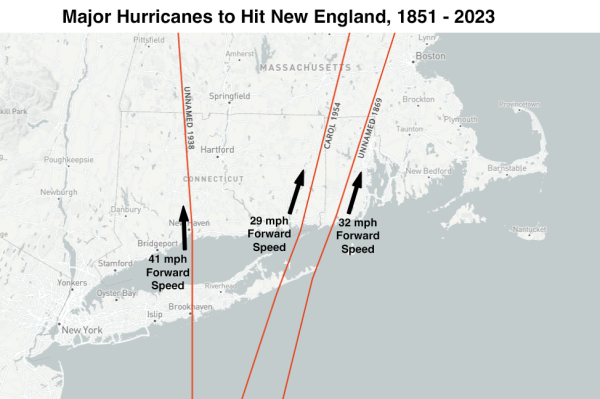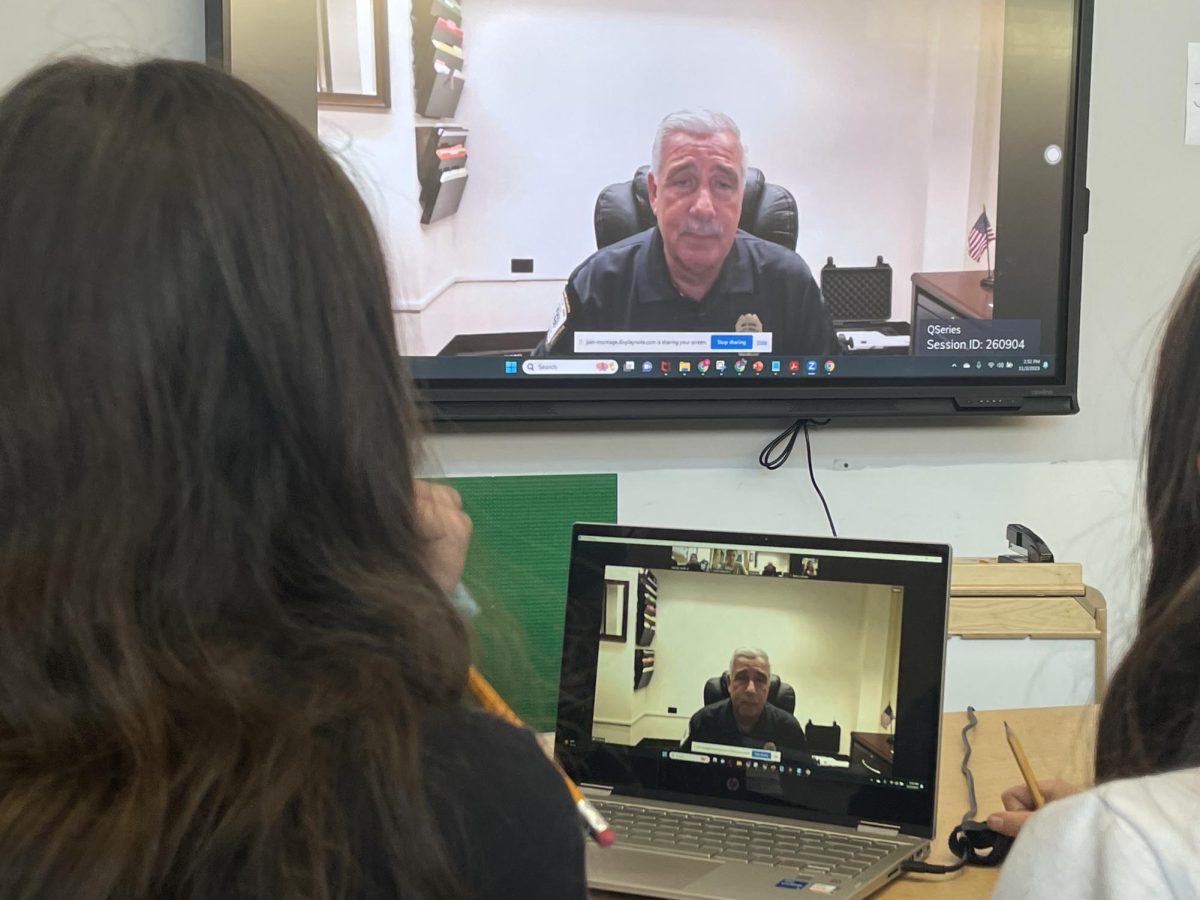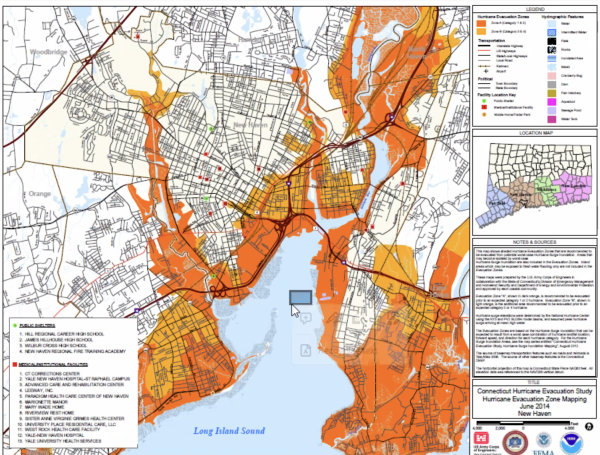Knock-knock. Who’s there? A hurricane! At your front door! In New Haven!
Hurricanes can be dangerous, and climate change means that they’re increasing in strength and frequency in New Haven. Experts say it’s important to get information — and be prepared.
“I think we can all agree that we have seen an increase — not only an increase in hurricanes, but they are also much more destructive,” Rick Fontana, director of Emergency Operations for the City of New Haven, told East Rock Record reporters.
“We have seen global warming and sea levels rise and that has certainly been an impact and a challenge for us as well,” he said, adding that, “We are seeing water in places we have not seen before.” According to Mr. Fontana, the city’s “slosh maps” show storm surge in New Haven is entering further into inland waterways.
A hurricane is made up of three things: 1. Hot air 2. Water 3. Spinning wind.
Jeff Masters, a meteorologist with Yale Climate Connections, co-founder of the Weather Underground, and a former storm chaser, said in an interview with East Rock Record reporters that in top form hurricanes need water with a temperature of 80 degrees Fahrenheit or more.
Masters pointed out that waters in New England are warming at rates double that in the Gulf of Mexico. This means that hurricanes are more likely to form. Another thing a hurricane needs is a lot of moisture; climate change increases evaporation which puts more moisture in the air.
And because warm air holds more water vapor, Mr. Masters said, “you will see a lot more heavy rainfall, and when hurricanes do hit they will drive their storm surge further inland.”
In addition to these worries, the sea level is rising by about one half-inch each year, which increases chances of flooding — even without a hurricane. The good news is that even though there are many storms, there is only about one hurricane per year in New Haven.
Only three major hurricanes have ever hit New England directly, Mr. Masters said. The Great New England Hurricane of 1938 was very destructive with high tides. In 1985, New Haven was flooded by Hurricane Gloria. And in 1991, Hurricane Bob caused a ten-foot storm surge that flooded New Haven. 
Students and teachers at East Rock Community & Cultural Magnet School have their own views and concerns about hurricanes. Many teachers said they had experienced a hurricane in their lifetime, but according to the East Rock Record Fall/Winter 2023-2024 Survey, only 30 percent of students have. The survey found that almost 60 percent of students are concerned about a serious storm, but only 56 percent said their family knows what to do in a big storm. Two-thirds of students said they were concerned about the impact of climate change on their life.
In the case of a big storm, Mr. Fontana, said the City of New Haven has shelters available to anybody in New Haven. He said there are three main shelters that can hold 6,000 people in total. The locations of these shelters are broadcast through local media, but Mr. Fontana said residents can also visit the emergency preparedness section of www.newhavenct.gov for tips on storm preparedness and evacuation information.
All types of people are welcome in the storm shelters. Even pets are allowed, but no horses! Only one percent of the New Haven population is expected to be looking for shelter during a hurricane, he said.
Most people go to the house of a relative or a hotel because people usually have four to five days’ notice before the storm hits. Mr. Fontana said that people who are poor, old, or very young, may have a harder time evacuating their homes and getting to a safe place.
Masters mentioned that in Hurricane Katrina many poor people suffered more than people with more money. There were 120,000 people who couldn’t evacuate because they didn’t have cars and the state did not provide any transportation. More than 1,000 people died.
The City of New Haven has an Emergency Operations Center at 200 Orange Street that is underground. “It is really a place where all the city officials would come and develop a strategy” for managing a storm, said Mr. Fontana. He said the center was activated four times in 2023. Even though there was not a hurricane, Mr. Fontana said city responders use it to plan in cases of expected heavy rains and other bad weather.
Almost every student and teacher we interviewed at the East Rock School agreed that it is easier for some people to evacuate than others. Most people we interviewed said that they think it is harder for some people to evacuate because of their age, if they are poor, or disabled.
As hurricanes develop more rapidly to dangerous levels, Mr. Masters said there is less time to warn people and help them prepare. This means that New Haven residents should be increasingly careful and aware of forecasted hurricanes. If a hurricane does happen, residents should be prepared to stay with a loved one or evacuate to their local shelter.
Edited by Han Pimentel-Hayes











